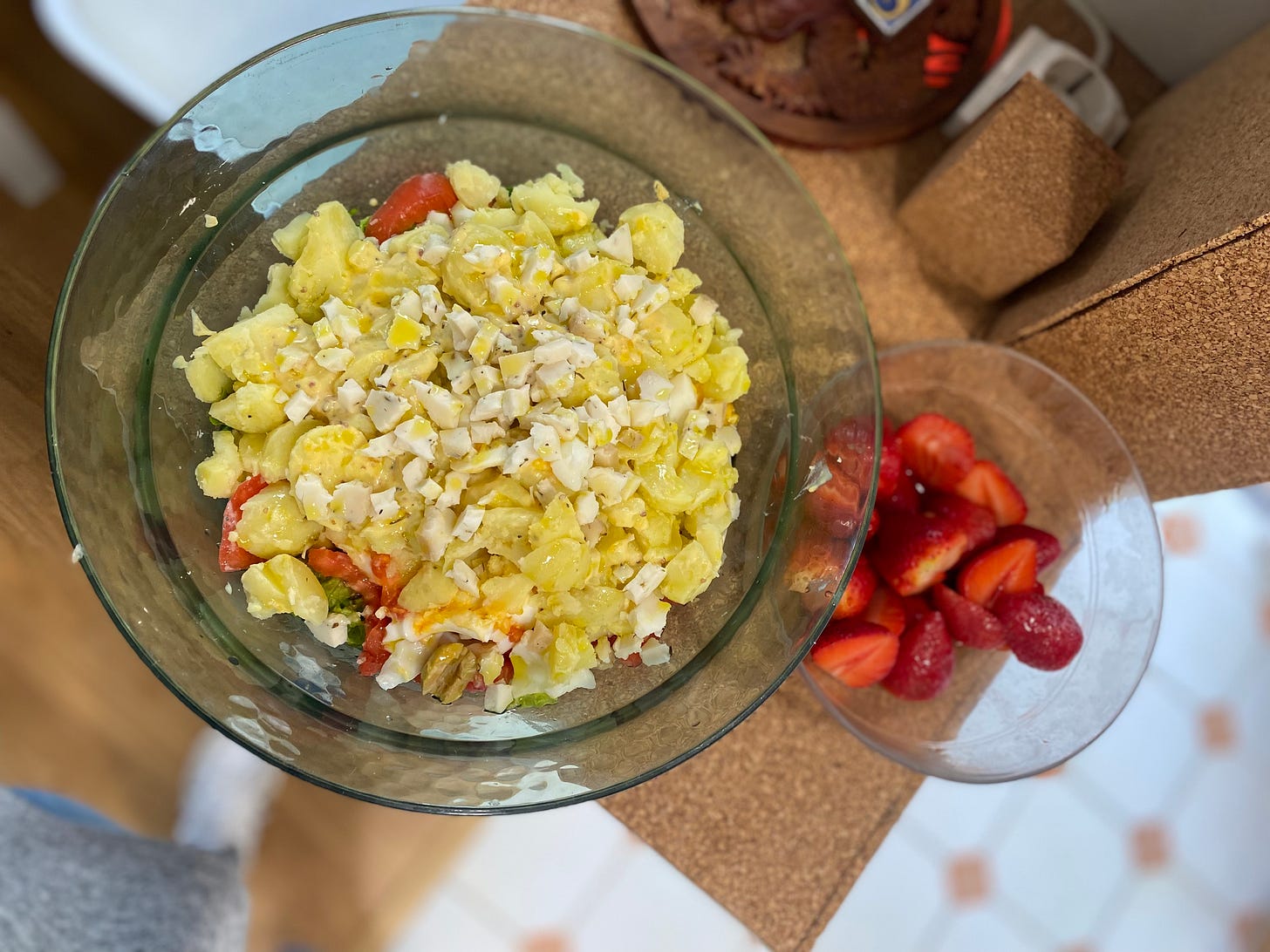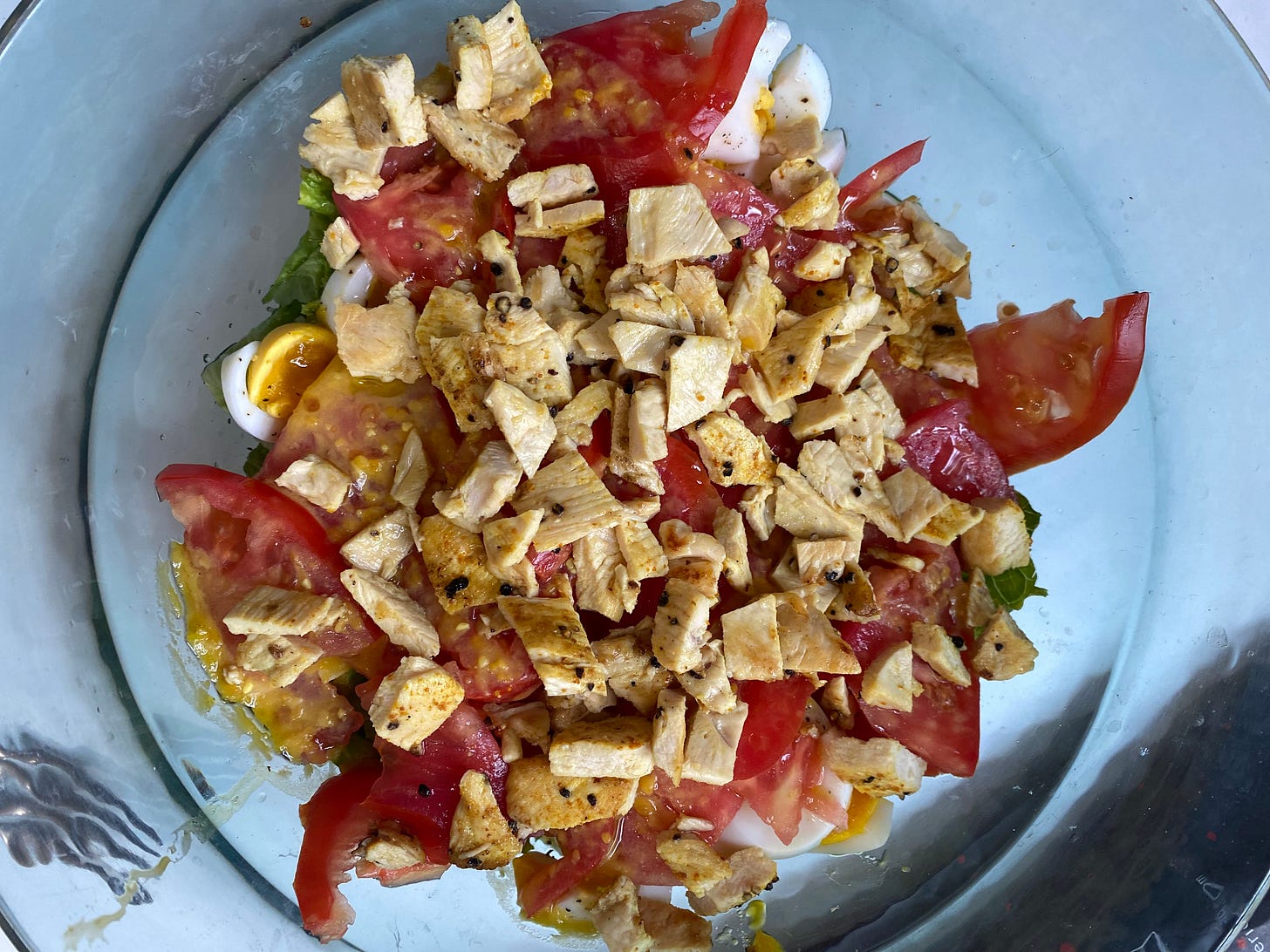Brain Health: Keeping Our Most Complex Organ in Shape 🧠
Brain-boosting tips from a top neuroscientist! From exercise to sleep, diet, and real friendships, this summary I made for my mama has important insights to a healthier mind and longer, happier life.
I was chatting with my mom and sister about memory loss and fears of dementia. The World Health Organization says there are over 55 million people worldwide with dementia. My heart goes out to families that witness their loved one suffer through it. I understand the concern to finding a cure or, at least, ways to mitigate its effects.
As if the universe was eavesdropping (It was most likely just the internet?👻), a new podcast episode of The Diary of a CEO by Steven Bartlett featured a neuroscientist talking about BRAIN HEALTH!🧠
Since my mom wouldn’t sit through 1.5 hours of brainy banter, I’m summing up the key points here. Haha!🤓
Listen to This! 🎧
Before I spill the beans, I recommend listening to the full podcast. The insights and stories shared by the Dr. Wendy Suzuki are life-changing.💛
Dr. Wendy is a Professor of Neural Science and Psychology at New York University. With her father having suffered from dementia, her research is deeply personal. She’s known for her groundbreaking work on brain plasticity, studying how our brain forms and retains new memories. Recently, she’s been focusing on how aerobic exercise boosts learning, memory, and cognitive abilities.
How to Keep Your Brain Healthy
1. Go out and ‘Move It - Move It’! 🕺💃
Dr. Wendy highlights a study showing that people over 65 who take three or more walks a week reduce their dementia risk by 30%. For the younger crowd, staying active now keeps your brain sharp for longer.
I’ll admit it—I groannnnn at exercise 😓, but a sedentary life is a no-no for your brain. Every move you make is like “a bubble bath for your brain”, helping it (literally!) grow and thrive.
So, let’s get moving—even if it’s just 3 walks a week. Mom, it’s time to find a dance class and dust off those dancing shoes!😍 Movement equals better decisions, attention, focus, and working memory.
What’s the best exercise?
Anything that gets your heart pumping, also called aerobic exercise.
How often?
As much as you can, but even 2-3 times a week will bring benefits.
2. Snooze Your Way to Brain Health 🛌
Another neuroscientist I listened to is obsessed with sleep. Why? Because quality sleep strengthens daily memories through a process called "consolidation."
While we sleep is also when the garbage truck comes to clear our brain of the waste and gunk accumulated throughout the day!
Sad news! 😞 Alcohol messes with your sleep, preventing deep rest. It ain’t good for us. Those studies saying alcohol in moderation—like wine!—can be healthy are outdated and wrong. 😢 DAMMIT!
3. Eat Produce, Not Processed Junk 🥗
Dr. Wendy recommends the Mediterranean diet: colorful, fresh produce is the way to go! Which reminds me, I have to make our salad for lunch! WAH
Mikel and I are lucky we both don’t mind eating this salad almost every day. I also feel lucky to have fresh (summer) fruits that I enjoy eating here like… peaches and cherries! 🍑🍒 I used to not like peaches and cherries ‘cause all I knew were canned peaches and maraschino cherries. 😢
Real Friendships Matter 👫
I feel like a broken record 🔂 because I try to mention this as often as I can in conversations… Real-life quality time with people is vital for brain health, longevity, and happiness. Social media isn’t enough! Don’t let it steal time from real-world interactions.📵
It’s so hard, though!!! I still haven’t gone on my digital detox, and it looks like my screen time has increased these past months. 😢 I need a hug!
Memory: Making Things Stick
How's your memory? While listening to the conversation, I could so relate to Steven Bartlett's frustration about forgetting names. They seem to disappear right after introductions. 😳 I'm amazed by people who remember names, dates, events… Like my mom! 💕
Dr. Wendy suggests that Steven's memory for stories might be stronger, and I hope that’s the case for me, too. 😆 While I may not be great with names and dates, I seem to have a knack for remembering stories and key points—after all, I’m able to recall this episode well enough to write it out for you here.😜
Top 4 Memory Boosters
Repetition: Hello, propaganda and historical revisionism. 😩
Association: Have you heard of the Memory Palace technique?
Novelty: New experiences stick because evolution taught us new things could be dangerous.
Emotional Resonance: Intense feelings lock in memories.
Our Frenemy named Anxiety
Dr. Wendy has also written a book about anxiety and they discuss the topic a bit toward the end of the conversation. Apparently, humanity is more anxious than ever. Big surprise!😝
But anxiety had an evolutionary purpose, helping our ancestors stay vigilant and survive in a world full of dangers. A sudden rustle in the bushes could mean the difference between life and death. Those who were more alert and anxious were better at recognizing threats and reacting quickly to them.
While we no longer have to worry about saber-toothed tigers, our brains still retain this ancient survival mechanism, manifesting as anxiety in today’s safer, but still challenging and taxing, world.
Guess what helps? Taking deep breaths. Also, movement! Just 10 minutes of walking can reduce the anxiety you feel.🤯 (Winner pala talaga ‘tong si exercise… Hassle! 🤭)
Time to do a bit of yoga. 😅
Ok, that's it! I think I'll do some yoga now. I actually listened to this episode while walking in Mount Ulia, and it did make me feel better. 💙 At least until I had corned beef for lunch and suffered a terrible food coma. Tsk tsk! 😬 Hence today’s salad!!! 🤣
In case you want to dive into the neuroscience blackhole…
I’ll leave you with some more videos I like from Dr. Wendy and another neuroscientist—Dr. Tara Stewart.
How to Calm Your Anxiety:
The brain-changing benefits of exercise:
Dr. Tara Stewart: Stress Leaks Through Skin, Is Contagious & Gives You Belly Fat!
If you listened to any of these, let me know.❤️ We can geek out about neuroplasticity together!🤓





